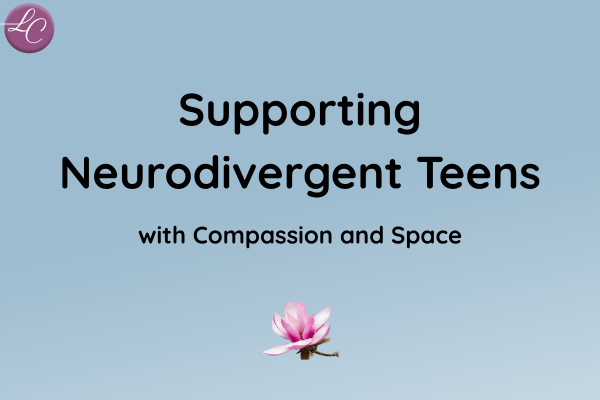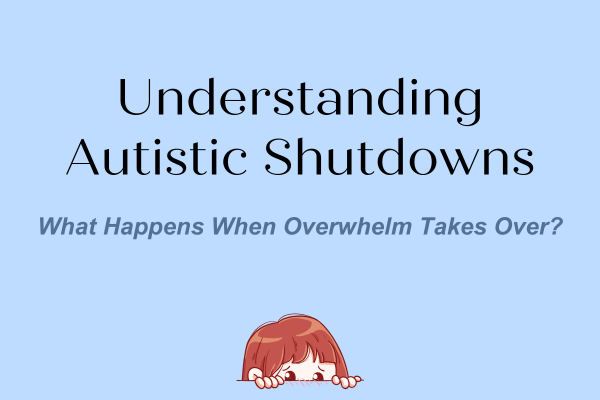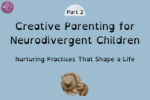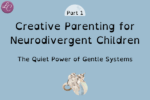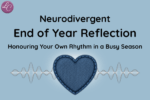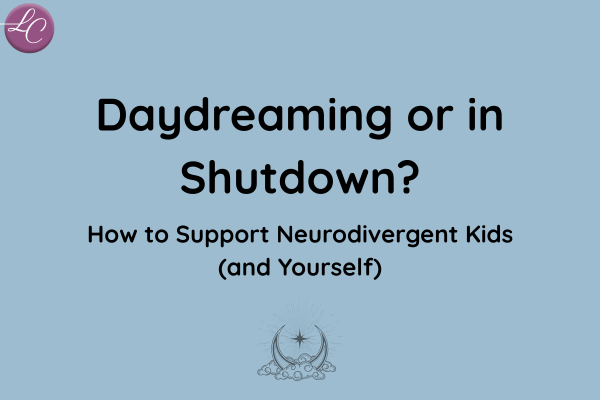
Daydreaming or in Shutdown? How to Support Neurodivergent Kids (and Yourself)
The Overlooked Experience: Daydreaming or in Shutdown
Have you ever caught yourself staring into space — not sure if you’re simply lost in thought or if something inside you has switched off?
Many neurodivergent adults recognise this sensation from childhood, when it was often misread as laziness, inattention, or being ‘away with the fairies’.
For neurodivergent children (and adults), daydreaming and in shutdown look similar on the outside but feel very different on the inside.
Understanding this difference is more than supportive parenting — it’s a step towards advocacy, self-compassion, and breaking old patterns of misinterpretation.
What Daydreaming Feels Like
Daydreaming is light, fluid, and imaginative.
Thoughts drift like clouds — soft, changeable, weaving colours and stories. A child might be replaying a favourite scene from a book, inventing an elaborate world, or working through a puzzle in their mind.
The key markers:
- Voluntary and often creative
- Relaxed body posture
- Ability to re-engage with a gentle prompt
For adults, this might feel like a mental ‘wander’ where ideas connect in surprising ways.
💡 It’s restorative rather than draining.
What Shutdown Feels Like
Shutdown, by contrast, is a nervous system response to overwhelm.
The outside world may see stillness, silence, and disengagement.
Inside, it can feel like moving through thick molasses, like thoughts are there but unreachable.
Shutdown is often triggered by:
- Sensory overload (noise, light, texture)
- Emotional overwhelm or social pressure
- Chronic masking and exhaustion
In children and adults, it can bring anxiety, heaviness, or even numbness.
💡 It’s a protective mechanism, not a choice.
Why Understanding Matters
Misreading shutdown as daydreaming (or vice versa) can lead to frustration, shame, or unnecessary pressure. Many neurodivergent adults grew up hearing:
- Stop being lazy.
- Pay attention.
- You’re off in your own world again.
This creates a cycle of self-doubt and hypervigilance.
By learning to recognise and respond with empathy, we offer something better — validation and safety, which fosters recovery and re-engagement.
Supporting Daydreaming and Shutdown
- Daydreaming: Allow space for creativity and curiosity. A soft prompt — “What are you imagining?” — can invite gentle connection without pulling someone out too quickly.
- Shutdown: Reduce sensory input, offer calming presence, and avoid pressure. Co-regulation (soft voice, slow breathing) helps restore nervous system balance.
Reclaiming Connection
For adults, recognising these states in themselves can be deeply liberating. It’s not inattention or a weakness. It’s a part of how your brain and body work to cope, recover, or create.
For children, your understanding can be life-changing. They learn self-trust, rather than internalising shame.
And for families, it builds deeper connections — rooted in seeing, truly seeing, each other.
Watch the Video
For more insights, watch the full discussion here:
Final Thoughts
Recognising whether it’s daydreaming or shutdown isn’t just about managing behaviour.
It’s about honouring experience — your child’s and your own.
When we meet these moments with empathy, we shift from frustration to understanding, from correction to connection.
Every time we pause and see what’s really happening beneath the surface, we’re breaking old patterns and building safer spaces for neurodivergent minds to thrive.
Ready to Go Deeper?
If this resonates, I’d love to support you further.

